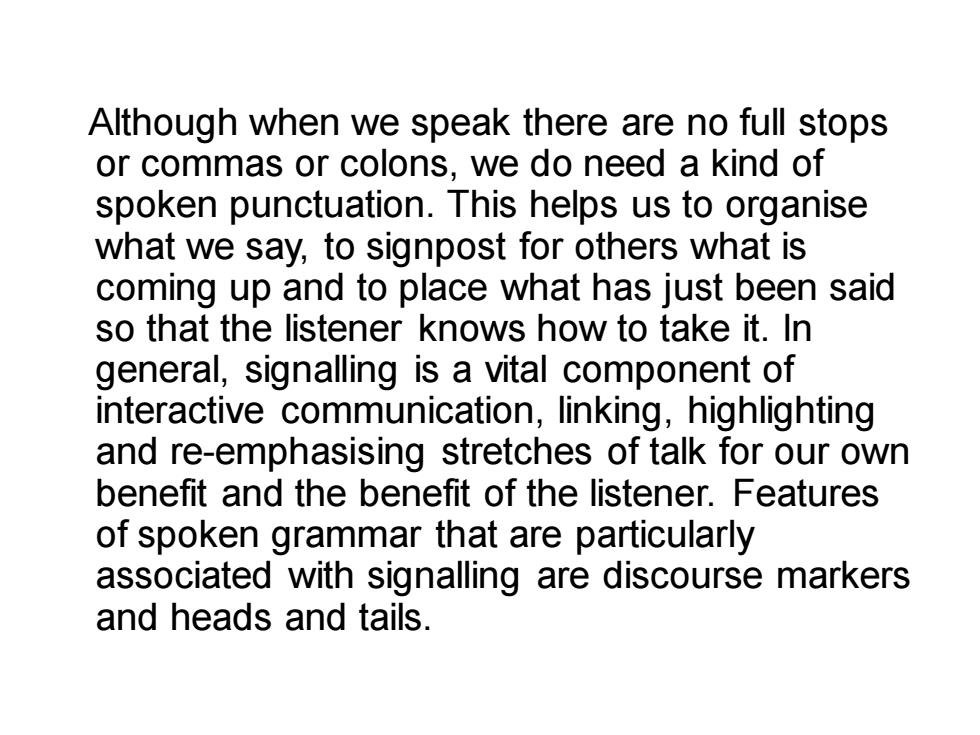正在加载图片...

Although when we speak there are no full stops or commas or colons,we do need a kind of spoken punctuation.This helps us to organise what we say,to signpost for others what is coming up and to place what has just been said so that the listener knows how to take it.In general,signalling is a vital component of interactive communication,linking,highlighting and re-emphasising stretches of talk for our own benefit and the benefit of the listener.Features of spoken grammar that are particularly associated with signalling are discourse markers and heads and tails Although when we speak there are no full stops or commas or colons, we do need a kind of spoken punctuation. This helps us to organise what we say, to signpost for others what is coming up and to place what has just been said so that the listener knows how to take it. In general, signalling is a vital component of interactive communication, linking, highlighting and re-emphasising stretches of talk for our own benefit and the benefit of the listener. Features of spoken grammar that are particularly associated with signalling are discourse markers and heads and tails